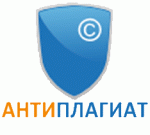-
Speciality Code:
5В073200
Speciality Name:
Standardization, certification and metrology (by industry)
Faculty:
Faculty of Business and Law
Field of study:
Technical science and technologies
- A) The aim
- The aim of Bachelor's program is to provide high-quality practice-oriented training in the field of standardization, metrology and certification, with professional and social competencies that meet the requirements of the modern economy and the labor market.
- B) Characteristic
- 1.Discipline/subject area
- The main disciplines: The quality management system; Metrology; Test, control and security products; Qualimetry; Monitoring and evaluation of the quality of food products; Standardization; Certification; Examination of the quality of goods and services; Feed and food safety; Technology development of standards and regulatory documents; Accreditation of conformity assessment bodies and testing centers; Confirmation of conformity of products and services.
- 2.General information/
- Specialization
- Standardization, Metrology and Certification (in the field of consumer goods and services)
- 3.Direction
- Technical
- 4.Features
- International practice passage by students of specialty is practiced
- C) Employment and further training
- 1.Employment
- Graduates of this educational program can work:
- In the technical regulation system of the RK State organs and services;
- At industrial enterprises;
- In conformity assessment organs and testing laboratories;
- Quality management centers;
- In educational institutions;
- In the consumer protection organizations;
- In the customs authorities.
- 2.Further training
- Master`s program in the specialty 6M073200 "Standardization and Certification"
- D) Style of education
- 1.Approaches to learning and teaching
- In the process of teaching a lot of attention paid to the use of innovative methods and technologies of training, project, practice-oriented training and student-centered learning
- 2.Assessment methods
- Quality assessment of the development of basic educational programs includes ongoing monitoring of progress, interim assessment of students and final state certification of graduates. For each academic discipline provides for specific forms and procedures for ongoing monitoring of progress (colloquia, performance of tasks, writing essays, essays, solution of case tasks, preparation of presentations, crossword puzzles, performance at seminars and IWST classes, etc.) and conducting boundary control.
- E) Program competences
- 1.General competences
- The program complies with the requirements of the State educational standards «Higher Education. Baccalaureate»To ensure the quality of academic programs in the first cycle level.
- This includes the general competence (also known as key skills) expected of graduates of the first cycle (see. http://adilet.zan.kz/rus/docs/P1200001080 on the website).
- Listed below are a summary of competence and the competence of the most characteristic for this program:
- ability to apply knowledge in practice;
- research skills;
- possession of methods of descriptive information and activities: data systematization and structuring description of the subject area (selection of key figures, personalities, issues, systematization of concepts, technologies and methods for solving problems, maintaining its own database, compilation of essays, reviews, manuals);
- ability to adapt to new situations;
- ability to generate new ideas (creativity);
- desire to lead to success;
- understanding of the culture and customs of other countries;
- knowledge and ownership of core management functions (decision-making, organization, motivation, control) and methods of their implementation;
- knowledge and ownership of the main business processes in the organization;
- ability to work independently and ability to develop and manage projects; concern for the quality;
- initiative and entrepreneurial spirit.
- 2.Specific competencies
- to demonstrate a basic knowledge of the history and standardization, metrology and certification;
- to know the organization of work in the Republic of Kazakhstan state technical control system, standardization of international practice, the rules of conformity assessment of products and services, audit management systems, the basics of licensing;
- to have an understanding of modern quality management, the basics of business, economics and management of the organization;
- to be able to apply computer technology to plan and work on standardization, metrology and certification;
- to own statistical methods of quality control, standardization of methods, the method of examination of quality products, the sampling methods, analysis of product quality, methods of calculation of economic efficiency of the standardization, metrology and certification;
- to know the basics of metrological support of production, methods of verification, calibration and repair of measuring instruments, the rules of metrological expertise, methods of measurement, methods of testing, analysis and quality control of products;
- to be able to work with the normative documents, to carry out their actualization, to make acts, protocols, fill the certificate forms, to develop normative and technical documentation, to carry out compliance assessment of technical documentation.
- F) Complete list of results for this training program
- In the context of student professional practice, in work organization as well as with clients, graduates can demonstrate the ability of the following:
- organization, development, revision and amendments to standards and normative documents;
- assessment of projects, programs, standards, standardization documents and the evaluation of their compliance with the current legislation, technical regulations, interrelated standards and documents;
- analysis of the application of the Republic of Kazakhstan with international and foreign technical regulations, standards, technical conditions and other normative documents on standardization, metrology and certification;
- analysis of the existing base of normative documents, assessment activities and the achieved level of standardization across industries and application areas, offer their improvement;
- determination of the range of measured and controlled parameters of production and technological processes, the optimal standards of measurement accuracy and reliability of the control, the choice of measuring instruments, testing and monitoring;
- the development of measurement and testing programs, techniques and control of measuring instruments, the development of measurement systems for specific industries;
- testing and type approval of measuring instruments, their verification and calibration, certification of measuring instruments, metrological control and supervision of measuring instruments;
- metrological examination and metrological study of design, technological and operational documentation;
- preparation of plans for the introduction of new measuring techniques, the introduction of advanced methods of measuring, testing and control;
- analysis of the documents presented for the certification of products (services), processes (works) and systems, assess their compliance with standards and other normative documents;
- analysis of the production and evaluation of the stability of the quality of products (services);
- development of methods and check the status of production programs and the functioning of the quality management systems in the enterprise;
- organization and carrying out of the inspection control of certified products (services), processes and systems;
- evaluation of the implementation of corrective and preventive actions.
| Degree of the program:Bachelor of engineering and technologyin specialty 5B073200 "Standardization, Metrology and Certification" | |
|---|---|
| The extent and duration | Single degree (one university)(289 ECTS – credits / 164 kaz. credits) |
| Educational institution | Karaganda Economic University of Kazpotrebsoyuz |
| Accreditation | The Independent Kazakh Agency for Quality Assurance in Education (IQAA)http://nkaoko.kz/ |
| Validity | This program was approved by the University for a period of 4 years for those receiving a degree at the University from 2016 |
| Level | QF for EHEA (Qualifications Framework for European Higher Education Area): 1st cycle; EQF (European qualifications framework): level 6; NQF (National qualifications framework): level 6 |






